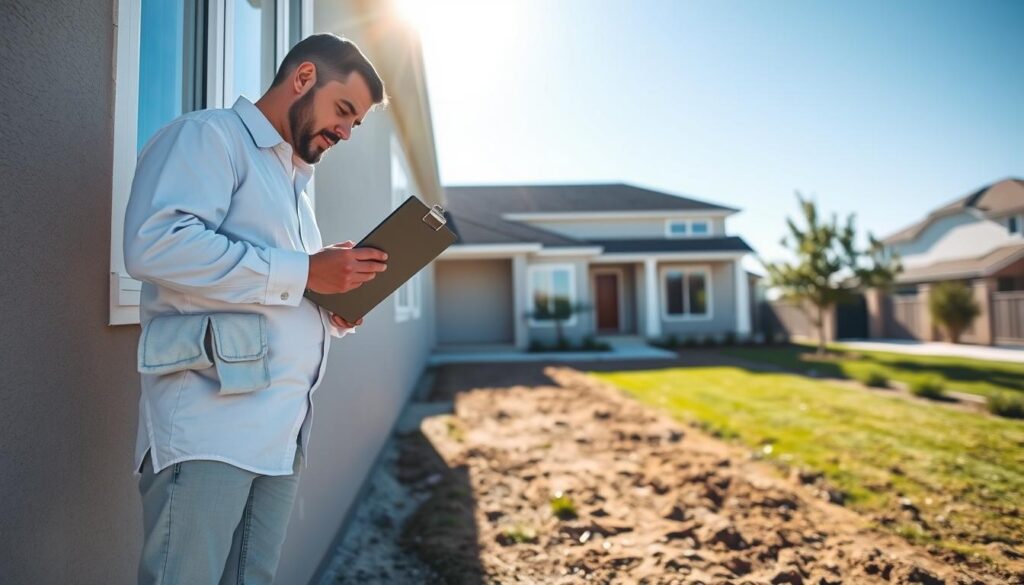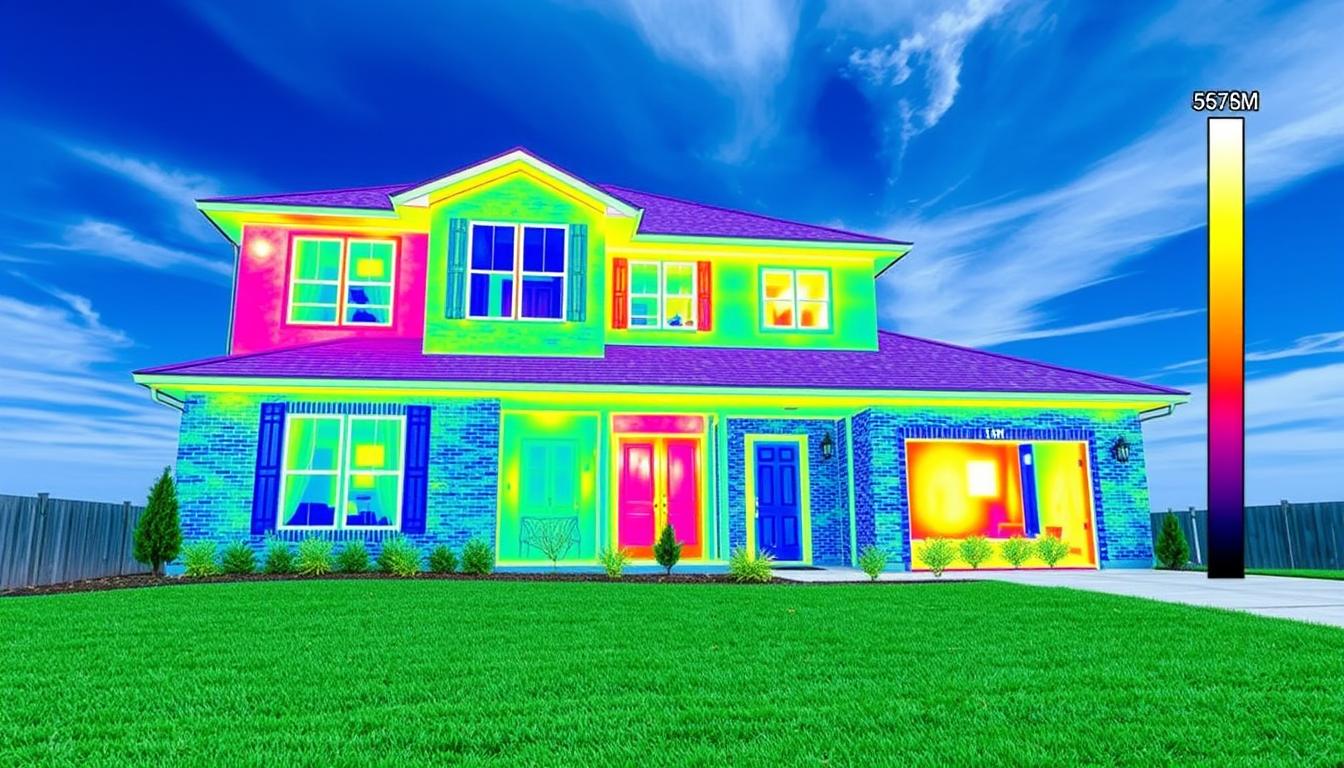Purchasing a recently built property might seem like a stress-free process, but even modern builds can have hidden flaws. This guide explains how to protect your investment with thorough evaluations at every stage. Whether you’re working with a builder or managing the process yourself, understanding what to look for ensures long-term peace of mind.
Many assume brand-new properties don’t require detailed checks, but this mindset can lead to costly oversights. Independent professionals often spot issues that builders might miss, from foundation cracks to wiring errors. A third-party review provides unbiased insights, helping you address problems before closing.
Advanced tools like infrared cameras detect moisture leaks and insulation gaps invisible to the naked eye. Combining these methods with phased evaluations—starting with pre-pour concrete checks and ending with final appliance testing—creates a comprehensive safety net. For Houston residents, partnering with local experts like New Homes Houston Texas ensures familiarity with regional building codes and climate challenges.
Their team offers tailored advice at (954) 821-4492, prioritizing transparency at every step. By investing in structured assessments upfront, buyers avoid expensive repairs later. The following sections break down critical inspection phases, common defects, and how to choose qualified inspectors.
Key Takeaways
- Even newly built properties require professional evaluations to uncover hidden defects.
- Independent inspectors provide unbiased assessments compared to builder-affiliated services.
- Thermal imaging technology identifies issues like energy leaks and plumbing faults.
- Phased inspections from foundation to final walkthroughs ensure thorough quality control.
- Local expertise matters—Houston-based companies understand regional construction standards.
Understanding the Importance of New Home Inspections
A brand-new property might look perfect, yet critical issues often lurk beneath the surface. Thorough evaluations ensure every system meets safety standards and functions as intended. Without them, minor oversights can escalate into major expenses within months of moving in.
Why Third-Party Evaluations Matter
Municipal checks typically last under 30 minutes and focus only on code basics. For example, a rushed review might miss improperly grounded outlets or HVAC duct leaks. Independent professionals spend 2-4 hours examining:
- Structural integrity of walls and foundations
- Compliance with Texas building codes (IRC 2021 Sections R302-R408)
- Proper installation of plumbing and electrical systems

Builder Reviews vs. Independent Assessments
Contractors often use in-house teams to approve their work—a clear conflict of interest. One Houston buyer discovered attic insulation gaps after closing that passed the builder’s inspection. Third-party services prioritize your interests, not the developer’s timeline.
| Factor | Builder Inspector | Independent Professional |
|---|---|---|
| Focus Area | Speed and project deadlines | Detailed quality assurance |
| Code Compliance | Minimum requirements | Full IRC adherence |
| Conflict of Interest | High (paid by builder) | None (client-funded) |
Ask evaluators about their certification and experience with energy efficiency standards. Reputable companies like New Homes Houston Texas document findings with photos and repair recommendations. Proactive checks now prevent disputes over warranties later.
New Construction Home Inspection Tips Houston: Step-by-Step Process
Building a property involves multiple stages where errors can occur unnoticed. A phased evaluation strategy catches issues early, saving time and resources. This method divides assessments into three critical checkpoints.

Three Critical Checkpoints
Phase one begins with foundation reviews before concrete pouring. Experts verify soil compaction and reinforcement placement. Missing this step risks structural instability as walls settle.
Pre-drywall evaluations examine framing, electrical wiring, and plumbing routes. Open walls allow professionals to spot misaligned pipes or improperly secured beams. One Texas evaluator found reversed hot/cold water lines in 12% of properties during this phase.
| Phase | Focus Areas | Tools Used |
|---|---|---|
| Pre-Pour | Foundation integrity | Moisture meters |
| Pre-Drywall | Framing & utilities | Circuit testers |
| Final Walkthrough | Systems functionality | Infrared cameras |
Strategic Timing Maximizes Results
Schedule the last assessment after all appliances are installed. This reveals installation errors affecting water lines or electrical connections. For example, dishwashers require specific drain slopes to prevent leaks.
Technology Enhances Precision
Thermal imaging identifies insulation gaps and moisture intrusion behind walls. Combined with air pressure tests, these methods uncover 23% more defects than visual checks alone. Professionals use this data to create prioritized repair lists for builders.
Adopting this structured process helps buyers address concerns before warranties expire. Partnering with certified evaluators ensures thorough documentation for negotiations.
Identifying Common Construction Defects and Safety Issues
Modern properties often conceal design flaws that surface months after move-in. A 2023 study found 41% of recent buyers discovered hidden defects post-closing, emphasizing the need for meticulous evaluations.

Structural, Electrical, and Mechanical Concerns
Framing errors rank among the most frequent issues. Builders sometimes use undersized joists or improper nail spacing, compromising load-bearing capacity. One Texas property required $8,200 in wall reinforcements when inspectors found 24-inch stud spacing instead of code-mandated 16 inches.
Electrical systems often show reversed polarity in outlets or overloaded circuits. Mechanical oversights include HVAC ducts disconnected in attics—a problem affecting 1 in 7 houses according to industry data.
Spotting Flaws in Brick Veneer, Flashing, and Drainage Systems
Missing weep holes in brick veneer allow moisture buildup, leading to interior mold growth. Improperly installed flashing around windows causes 63% of water intrusion cases in southern climates. Drainage mistakes prove equally costly:
- Negative grading directing water toward foundations
- Clogged French drains from construction debris
- Undersized gutters unable to handle Houston’s heavy rains
These oversights often escape municipal reviews but become apparent during thorough assessments. “We consistently find code violations builders dismiss as cosmetic,” notes a certified Houston evaluator. Proactive checks of plumbing vent stacks and roof penetrations prevent $3,000-$15,000 in future repairs.
Comprehensive evaluations address both immediate safety risks and latent defects. Documenting issues early strengthens warranty claims and ensures properties meet long-term livability standards.
Choosing and Hiring the Right Houston Home Inspector
Selecting the right professional to evaluate your property requires careful consideration. Third-party experts act as your advocate, identifying issues that affect safety and value. Their findings help negotiate repairs before closing.

Essential Criteria for Qualified Professionals
Start by verifying certifications from organizations like InterNACHI or ASHI. These credentials ensure adherence to national standards. Ask for sample reports to assess clarity—detailed documents include photos and repair priorities.
| Factor | Builder-Affiliated | Independent |
|---|---|---|
| Certification | Often limited | Required |
| Reporting Standards | Basic checklists | 100+ item analysis |
| Conflict of Interest | High | None |
One family discovered improperly sealed windows during their final walkthrough—an issue the builder’s team overlooked. Independent services flagged it, saving $4,200 in water damage repairs.
Prepare these questions when interviewing candidates:
- “How do you verify compliance with local building codes?”
- “Can you provide references from recent clients?”
- “What tools do you use to detect hidden defects?”
Reputable inspectors explain their process upfront, including foundation checks and system testing. They’ll also review manufacturer guidelines for installed appliances. This attention to detail ensures your investment meets quality benchmarks.
Always compare service scope and pricing. While cost matters, prioritize comprehensive evaluations over basic packages. The right choice delivers peace of mind through rigorous assessments.
Importance of Home Inspections for New Homes in Houston
Taking proactive steps when evaluating a recently built house ensures lasting value and security. Comprehensive assessments by independent professionals uncover hidden flaws in plumbing, electrical systems, and structural components. These checks protect your investment long after moving in.
Phased evaluations during critical building stages—from foundation work to final appliance installations—create multiple safety nets. This process helps identify issues like improper drainage or code violations early. Buyers who skip these steps often face costly repairs within the first year.
Always verify an inspector’s certifications and ask about their approach to reviewing complex systems. Reputable services prioritize detailed reports over rushed checklists, giving you leverage during negotiations. Companies like New Homes Houston Texas combine local expertise with advanced tools for thorough analysis.
Protect your property’s integrity by scheduling assessments at strategic intervals. For personalized guidance, contact their team at (954) 821-4492. Diligence today prevents tomorrow’s headaches, ensuring your house remains safe and functional for years to come.





